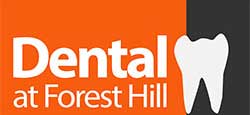Table of Contents
Gum recession can lead to a variety of issues such as tooth sensitivity, decay, and even tooth loss. If you think your gums are receding, it’s important to take action to prevent further damage and address any underlying issues.
Gum recession is a common dental problem that occurs when the gum tissue surrounding the teeth begins to pull back or wear away, exposing more of the tooth's root.
Signs that may indicate gum recession
Tooth sensitivity
If you experience sensitivity when consuming hot or cold foods and drinks, it may be a sign that your gums have receded.
Longer-looking teeth
If your teeth appear longer than they used to, this may be due to gum recession.
Visible roots
If you can see the roots of your teeth, this is a clear indication that your gums have receded.
Changes in tooth alignment
If your teeth are starting to shift or become loose, this may be a sign of gum recession.
Causes of gum recession
So, what causes gum recession? There are several factors that can contribute to this problem, including:
Periodontal disease: This is a bacterial infection that can cause inflammation and damage to the gums, leading to recession.
Brushing too hard: If you brush your teeth too aggressively, you can wear away the gum tissue and cause recession.
Genetics: Some people are more prone to gum recession due to their genetic makeup.
Hormonal changes: Hormonal shifts, such as those that occur during pregnancy or menopause, can increase the risk of gum recession.
Diagnosis and treatment plan
If you think your gums are receding, it’s important to visit your dentist for a proper diagnosis and treatment plan. Depending on the severity of your condition, your dentist may recommend a variety of treatments, including:
Scaling and root planing: This is a deep cleaning procedure that removes plaque and tartar from the teeth and roots to promote healing.
Gum grafting: This involves taking tissue from elsewhere in the mouth and grafting it onto the affected area to restore the gum line.
Orthodontic treatment: In some cases, orthodontic treatment may be necessary to realign the teeth and prevent further gum recession.
Surgery: In severe cases of gum recession, surgery may be necessary to repair the damage and restore the gum line.
Prevent gum recession
To prevent gum recession, it’s important to practice good oral hygiene habits, including brushing twice a day with a soft-bristled toothbrush, flossing daily, and visiting your dentist regularly for check-ups and cleanings. Avoiding tobacco use and eating a healthy diet can also help to keep your gums healthy and prevent recession.
In conclusion, if you think your gums are receding, don’t delay seeking treatment. With the right care and attention, you can prevent further damage and protect your oral health for years to come.
Contact Dental At Forest Hill
Our emphasis is always to provide gentle, dental care. We are a family oriented general dental practice, and our primary focus is preventing disease and providing happy smiles. We are conveniently located on 250 Canterbury Rd, Forest Hill, VIC 3131. You can call us on: (03) 9878 3233 to ask any questions or to set up an appointment.


